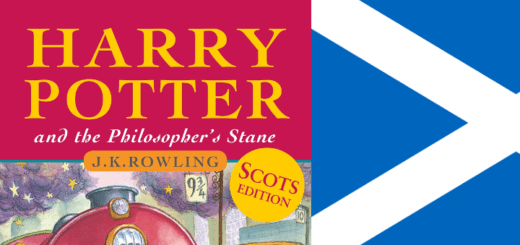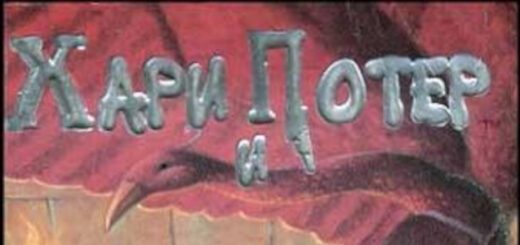Harry Potter and the Blair Partnership Translation List

Authoritative information about Harry Potter translations from primary sources is really hard to come by. Even if you do get a response to your request, it’s rarely very useful. I’m on the fence about whether that’s more frustrating or gratifying personally; pursuing the mystery is, after all, part of the appeal for me and the raison d’être of this site!
The Blair Partnership is a literary agent that represents J. K. Rowling and manages the rights and permissions of the various publishers around the world. Last summer, @foreverpotterish got a list of “Harry Potter Translations” from the Blair Partnership which he recently shared with me. Exciting, right?! Finally, verification! Sadly, not so much. (The list itself is reproduced below in it’s entirety below.)
A quick count will tell you the list is not complete: it has only 64 items which we know is way too low. Then scanning through the list, you very quickly note that it includes some odd items like “Dutch Print”, “Dutch Audio”, “Norwegian Print” and “Norwegian Audio”. It lists both English (not a translation, but the original), and English US (not a translation, just an adaptation). Also, it has “Spanish (Valencian)” and “French (Canada)—the former being an adaptation of Catalan and the latter being just… French1. Excluding these, the list is down to only 60, which falls far short of the 78 official translations (as of this writing) that we know exist. How on earth could the Blair Partnership—the company that actually negotiates these rights—have it so blatantly wrong?
Honestly, we can’t really blame them. Even amongst those of us that care about such things, it’s hard to navigate the nuances of how to ask the right questions, let alone get the responder to understand those nuances and to care enough to put the effort into providing usable information. The Blair Partnership can get it wrong because the information that they have at hand is structured to meet their needs, not ours. Even my list is structured to meet primarily my needs despite trying to provide information relevant to other collectors as well.
So, this list is not useful for answering the question “what languages has Harry Potter been translated into?”—at least, not anything we didn’t already know. But, what if the question was “what does this list tell us about the Blair Partnership and how they structure their information?”
The Blair Partnership does not care about languages or translations—they care about publishers and rights: contracts. They don’t maintain a list of translations—why would they? It’s immaterial to the work they actually do. So, imagine a request comes in from some anonymous person on the Internet. They are polite and enthusiastic, so you want to be nice and reply to them. Plus, it is kind of an interesting question and you’re intrigued yourself. You don’t really know anything about linguistics because your career is about negotiating contracts (or more likely you are the admin assistant of someone who negotiates contracts). How would you go about creating a list of translations in the most expedient way possible? You’d open up your folder of contracts, open them up and see what languages are listed.
Note that the list is not alphabetical. That doesn’t mean that the order is random; in fact, it most likely reflects that the source documents used to create the list were sorted differently. I’d be willing to go out on a limb and bet that they are order chronologically by publishing contract. Look at the last few items on list: Tagalog (Filipino), Azerbaijani, Russian, Romanian… Filipino and Azerbaijani are a recent translations; both Russian and Romanian recently came out with new translations to replace the originally published translations.
Take a look at a subset, the Indian languages (more about the missing ones later):
| Language | B.P. Rank | Publisher | Pub. Year |
|---|---|---|---|
| Hindi | 44 | Manjul | 2003 |
| Bengali | – | Ankur Prakashani | 2003 |
| Gujarati | – | Manjul | 2004 |
| Malayalam | 47 | Manjul | 2004 |
| Marathi | 48 | Manjul | 2004 |
| Sinhalese | 49 | Sarasavi | 2004 |
| Tamil | 58 | Manjul | 2013 |
| Telegu | 63 | Manjul | 2014 |
It would be impossible to be 100% sure because the date of securing a contract for rights is not necessarily reflective of publication date. Not to mention that contracts may need to be renewed, or renegotiated; undoubtedly, if my hypothesis is correct, this order is reflective of the most recent contract, not the original, and we are never going to be privy to that kind of internal information. Nonetheless, if you sit back and squint… it looks pretty chronological.
Note that the inclusion of Dutch and Norwegian Audio support the idea that we’re looking at contract-based list too as the print and audio rights in this case were likely negotiated separately. This is also likely why adaptations are included even though they are based on an existing translation; in the case of English, it was a different company and in the case of Valencian, they probably needed permission to print a modified version. It seems likely that French (Canada) represents a separate negotiation by Gallimard Juenesse for the regional rights to distribute in Canada.
Again it’s impossible to be 100% sure. Different contracts will have different negotiated permissions; audio rights, subsidiary publishers and distributors, regional rights, modifications… all of these may or may not be included in any given contract. Even multiple language rights might be in the same contract. We don’t know how diligently the list-creator was in looking for those kinds of details or what filters they may or may not have applied themselves in their best attempt to answer the question.
Consider some of the languages that are missing from the list: Greenlandic, Nepali, Macedonian—a number of languages that we know are no longer being published. If this list was created from active contracts, that would go a long way to explaining why it’s so short. If we go back to the list of Indian languages above: which languages are the hardest to find now? Gujarati and Bengali, the two that are missing from the list3.
Also note the lack of duplicates. Russian and Romanian both only appear once on the list even though they have more than one published official translation. Of course, the list-creator likely wouldn’t have intentionally included duplicates; however, if they were filtering, and they are working from a chronologically organized set of contracts they most likely would have added Russian and Romanian much earlier on the list and filtered out subsequent instances of the languages. The placement of Russian and Romanian on this list makes the most sense if the creator was working from only active contracts.
I’d be pretty confident asserting that this list reflects the current publishing rights of the different translations. The most useful information to come out of this list for collectors may be what is not on the list: a list of translations that are not currently being published and in all likelihood won’t be published again. It might help prioritize the books you’re looking for. For the record, as of this writing, the list of languages missing from the Blair Partnership list is:
| Afrikaans |
| Armenian |
| Basque |
| Bengali |
| Croatian |
| Farsi |
| Low German |
| Greenlandic |
| Gujurati |
| Hebrew |
| Hungarian |
| Khmer |
| Macedonian |
| Mongolian |
| Nepali |
| Occitan |
| Tibetan |
| Turkish |
| Urdu |
Notes:
Thanks to @foreverpotterish for obtaining and sharing this list!
1. I’m pretty confident that the French edition was not adapted for Canada; however, I am currently investigating that remote possibility.
2. The original was a Word document formatted into three columns. Numbers were added by me. Estimated to have been created circa summer 2016.
3. Other hard-to-find books are still on the this list, notably Asturian. Of course, having and maintain publication rights, by no means obliges you to actually publish or print.
The Blair Partnership List2
| 1. | English Print |
| 2. | Italian Print |
| 3. | German Print |
| 4. | French Print |
| 5. | Danish Print |
| 6. | Greek Print |
| 7. | Spanish (Castilian) Print |
| 8. | English Print (USA) |
| 9. | Finnish Print |
| 10. | Dutch Print |
| 11. | Icelandic Print |
| 12. | Portuguese Print |
| 13. | Spanish (Catalan) Print |
| 14. | Korean Print |
| 15. | Norwegian Print |
| 16. | Japanese Print |
| 17. | Swedish Print |
| 18. | Czech Print |
| 19. | Chinese (Complex) Print |
| 20. | Portuguese Print |
| 21. | Polish Print |
| 22. | Lithuanian Print |
| 23. | Faroese Print |
| 24. | Bulgarian Print |
| 25. | Norwegian Audio |
| 26. | Slovakian Print |
| 27. | Thai Print |
| 28. | Indonesian Print |
| 29. | Chinese (Simplified) Print |
| 30. | Dutch Audio |
| 31. | Vietnamese Print |
| 32. | Turkish Print |
| 33. | Estonian Print |
| 34. | Ukrainian Print |
| 35. | Spanish (Valencian) Print |
| 36. | Albanian Print |
| 37. | Georgian Print |
| 38. | Latvian Print |
| 39. | Arabic Print |
| 40. | Bahasa Malaysia Print |
| 41. | French (Canada) Print |
| 42. | Latin Print |
| 43. | Welsh Print |
| 44. | Hindi Print |
| 45. | Ancient Greek Print |
| 46. | Irish Print |
| 47. | Malayalam Print |
| 48. | Marathi Print |
| 49. | Sinhalese Print |
| 50. | Frisian Print |
| 51. | Serbian Print |
| 52. | Slovenian Print |
| 53. | Asturian Print |
| 54. | Luxembourgish Print |
| 55. | Bosnian Print |
| 56. | Breton Print |
| 57. | Tagalog Print |
| 58. | Tamil Print |
| 59. | Azerbaijani Print |
| 60. | Russian Print |
| 61. | Spanish (Galician) Print |
| 62. | Montenegrin Print |
| 63. | Telugu Print |
| 64. | Romanian Print |







I’m curious. I like your assertion about active versus old contracts. But Armenian wasn’t on list, but it looks to be actively published with PoA coming out recently and word on the street is that all 7 books are being published. When @foreverpotterish got the list, Armenian cos was either about to come out or just did (I think), so wouldn’t that be an active contract?
That is an astute observation and something I definitely did not notice before!
I’m confident enough that the BP list reflects active contracts, that I’d guess that Armenian’s exclusion likely has more to do with the date the list was created. “Summer 2016” for the creation of the list is only <—scratch that! I can't believe that I did not check this before—it suddenly occurred to me to check the embedded properties in the document and not only did I get a precise date for the creation of the document, I also found who created it (which I will not announce online because they are quite easy to find). Creation date was 2016-06-23. Definitely the lack of Armenian on the list is an interesting exclusion since the pending publication of Armenian PS was announced in Feb 2016. But at the same time, Romanian being the last item in the list and the new Romanian PS coming out Nov. 2015 might suggest that Armenian's exclusion was due to some sort of internal delay? Like perhaps contracts are negotiated by one team and then maintained by another and there is a buffer period between the contract being passed from one team to the other? I can't remember how close to the release date I got my copy, but I feel like it was pretty close and that was 2017-07-03—so the time lines are close enough that I think this may be a plausible explanation...